By acting on the causes of aging, we may prevent, or at least delay, the onset of diseases related to this process, thus improving our quality of life.
The passage of time and our lifestyle habits cause our body to begin to lose its power of renewal.

From a scientific point of view, aging is the result of cellular and subcellular damage that occurs with the passage of time, and it is the cause of:
The fundamental mechanisms by which aging occurs are very clearly illustrated in the article The Hallmarks of Aging (López-Otín, C., Blasco, M. A., Partridge, L., Cell, M. S., 2013), written by a group of Spanish researchers (López-Otín, M. Blasco…), which marked a milestone in biomedical gerontology. Specifically, they are the following:
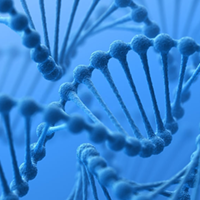
DNA deterioration impacts cellular and mitochondrial function. There is evidence that upregulating DNA repair mechanisms prolongs survival.
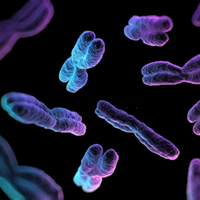
Aging causes the ends of chromosomes to shorten, leading to a more “aged” cellular behavior, with fewer divisions and tissue regeneration, and consequently more diseases.
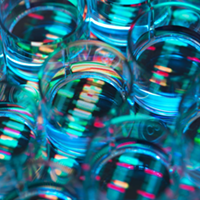
The “assembly instructions” that come in our genome do not determine our health completely. There are several mechanisms (mainly our life habits) that allow us to make our health better or worse, facilitating or hindering the appearance of diseases to which we are predisposed.
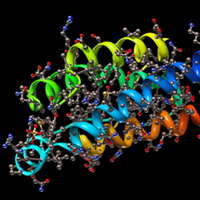
The proteins in our body are in a constant cycle of creation, deterioration, and elimination. The loss of this balance produces accumulation of protein waste in numerous organs, damaging their function. In the brain, this leads to diseases such as Alzheimer’s and Parkinson’s.

As we age, our body is less able to react to nutrients, producing insulin resistance and other hormonal issues. Calorie restriction or its simulation with drugs has been shown to increase longevity; also hormone replacement combats the effects of aging in target tissues.
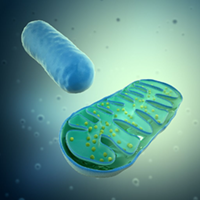
Mitochondria are the “furnaces” of cells, where we oxidize (burn) nutrients. Mitochondrial dysfunction leads to uncontrolled oxidative stress and accelerated aging.
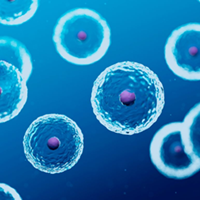
In healthy tissues, when a cell is deteriorated, a programmed cell death (apoptosis) is activated so it may be replaced by a new one. When this mechanism is altered, tissues accumulate aged and non-functional cells, and in the long term, it is the tissue/organ itself that ceases to function properly.
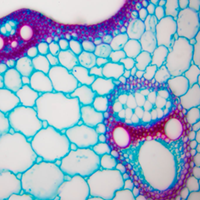
Repairing damaged cells and maintaining our body in perfect condition depend on stem cells. These have mechanisms that ensure greater survival and reproductive capability. The depletion of this capability means that we are not able to regenerate properly after a certain age.
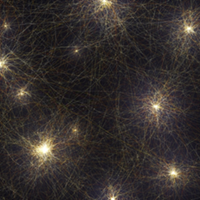
Altered hormonal systems, inflammation, and the loss of blood stimulating factors cause aging to go beyond a single cell and become “contagious”.
Aging is inevitable: as the years go by, a decline and/or increase in a series of biomarkers -in the blood, hormonal, functional, cardiovascular, neurocognitive, anthropometric- occurs in our body. However, how fast this aging takes place is not the same in all of us, as it is modulated by three fundamental factors:

The genetic load of our DNA determines from birth the rate at which we will age, although according to scientific studies, this only accounts for around 30% of the total.

They have a negative or positive influence on the aging process: stress, diet, exercise, environmental toxins, rest, bad habits...

The actions we take in the field of Antiaging Preventive Medicine may greatly reduce the speed at which our body ages.
The aging process begins to manifest from the age of 35-40. In women, there are two stages related to this process, menopause and pre-menopause, which are two clearly identifiable turning points.
Some of the most frequent symptoms in women are:
Onset of age-related diseases: cardiovascular, cancer, diabetes, osteoporosis, neurodegenerative...
Uncontrolled weight gain and fluid retention
Decreased collagen and elastin: lack of skin elasticity and increased wrinkles
The aging process begins to manifest from the age of 35-40. Just as in women it begins with menopause, in men, this stage is called andropause, better known as the “mid-life crisis”.
Onset of age-related diseases: cardiovascular, cancer, diabetes, osteoporosis, neurodegenerative...
Decreased sexual performance: erectile dysfunction, impotency (decline in hardness, duration and less intense ejaculations), lower sex drive...
Muscle deterioration: loss of muscle mass (sarcopenia), weaker musculature (kratopenia), and loss of strength and speed (dynapenia)
|
|